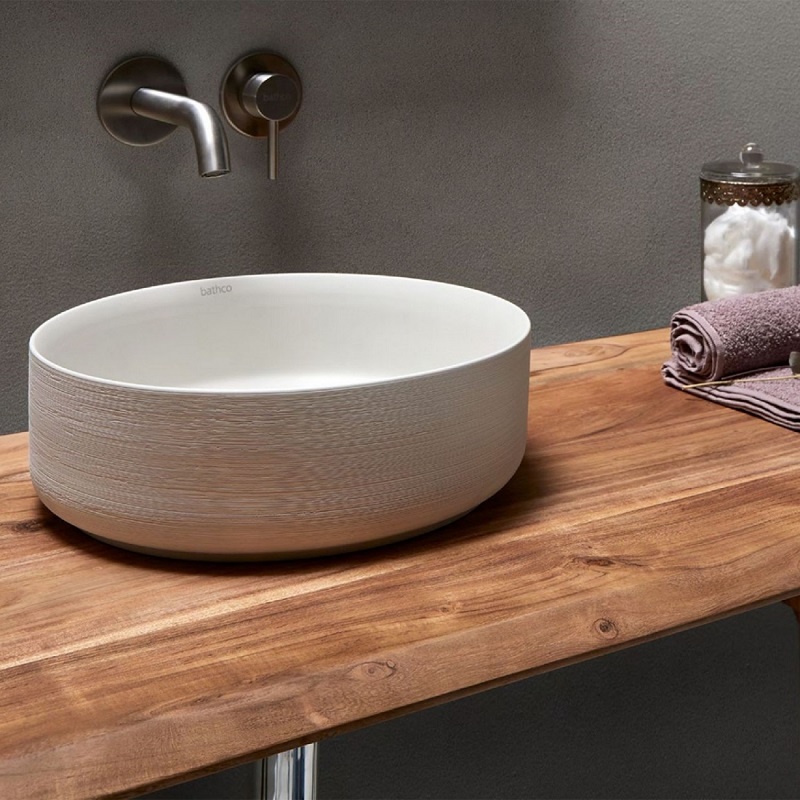In the criteria for choosing a washbasin, the predominant trend is style and colour, since it is the most determining visual impression in a bathroom. However, in this content we highlight the importance of materials for sinks and their advantages both in operation, aesthetics, hygiene even maintenance care. The materials of sinks the most used are ceramics, tempered glass, acrylic resin, stone (this can be marble, slate …) and synthetic materials. Next, we will describe in detail what are the characteristics and the main advantages of choosing high ranked brands like LESSO Ceramic Basin or another material for the washbasin.
Porcelain and ceramic sinks
Among the most popular materials for sinks on the market, porcelain and ceramic occupy the first place. This is due to its durability, waterproofing and beauty characteristics. The king of sinks is undoubtedly ceramic. They are covered with an enamel layer that, in addition to providing an infinity of colours, offers ideal protection against humidity. The fundamental advantages of ceramic sinks are their great resistance to cleaning products and their ease of cleaning.

Tempered glass
This material for sinks is currently leading the trend. Its main attribute is that it provides an impressive aesthetic and a wide variety of models. Its composition guarantees high resistance to humidity. The glass sinks also stand out for their safety, which has promoted it within the main materials for bathroom elements. Its surface also represents an ideal opportunity to maintain hygiene at its best.
Acrylic resin and synthetic materials
Acrylic resin is a high quality and very resistant synthetic material. It does not scratch and is easy to clean. Among the synthetic materials used in sinks are Silestone, techno stone, Corian and acrylic resin. These types of elements allow exclusive designs that guarantee a truly impressive aesthetic. Some of its advantages stand out, in the case of resin for example, for its high resistance to scratching and that its surface does not concentrate moisture, facilitating its cleaning.
Stone sinks
Without a doubt, stone is one of the favourite washbasin materials for those who want an authentic bathroom. Its main quality is high resistance, so there is no doubt about its quality. The nature of its porous surface conditions the type of cleaning product to be implemented in its maintenance. This includes a special section for treating stains, which usually appear on this type of material. There are different types of stone used for sinks such as marble, enamelled lava and slate.
The marble
It is one of the most representative materials for sinks and its wide variety of colours makes it an ideal option. It is resistant, easy to maintain, and with a great aesthetic presentation.

The enamelled lava
Exclusivity is its main strength. In accordance with its nature, each enamelled lava basin is made as a single piece, so it is necessary to check the dimensions before installing it. It has a protective enamel layer that allows ideal protection. The originality of this washbasin makes it one of the most expensive on the market, making it an important choice.
Slate sinks
It is a reliable alternative thanks to its high resistance to humidity. These sinks are waterproof and have a variety of shades according to the minerals present.
Concrete
In materials for sinks, concrete had not been an everyday choice until today, where it is already positioned as one of the most prominent. This is due to its great resistance to any type of stain, mark or residue. Its strength, security and variety of nuances have been positioning it as one of the most suitable alternatives for those seeking maximum quality.
Choosing the best washbasin materials for our bathroom is an important decision. Such an elementary, every day and personal piece should not be left to chance, so do not hesitate to select a washbasin with a high quality and an excellent design.






